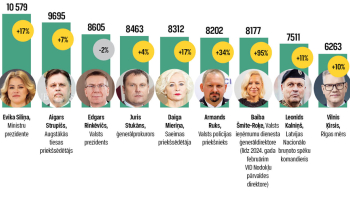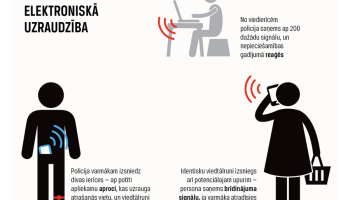
Foto: Jānis Saliņš, F64
Latvia is no longer the third-poorest country in the EU!
It is now only fourth from the bottom but this is due to Croatia's entry into the EU a few days ago and Croatia is a tad behind Latvia so no real reason for celebration...
Rather, it might be time for a little bit of concern. The Latvian economy left recession in mid-2010 and has since grown quite briskly, see Figure 1; it even regained the position of the fastest growing economy of the European Union although that doesn't say much these days. Recent data points to a slowdown, however.
Figure 1: Latvian growth rates, quarterly data, 2010 - 2013
Source: Central Statistical Bureau of Latvia
What brought Latvia out of recession was a very strong export performance and what is slowing the economy now is a seeming slowdown in exports, see Figure 2.














